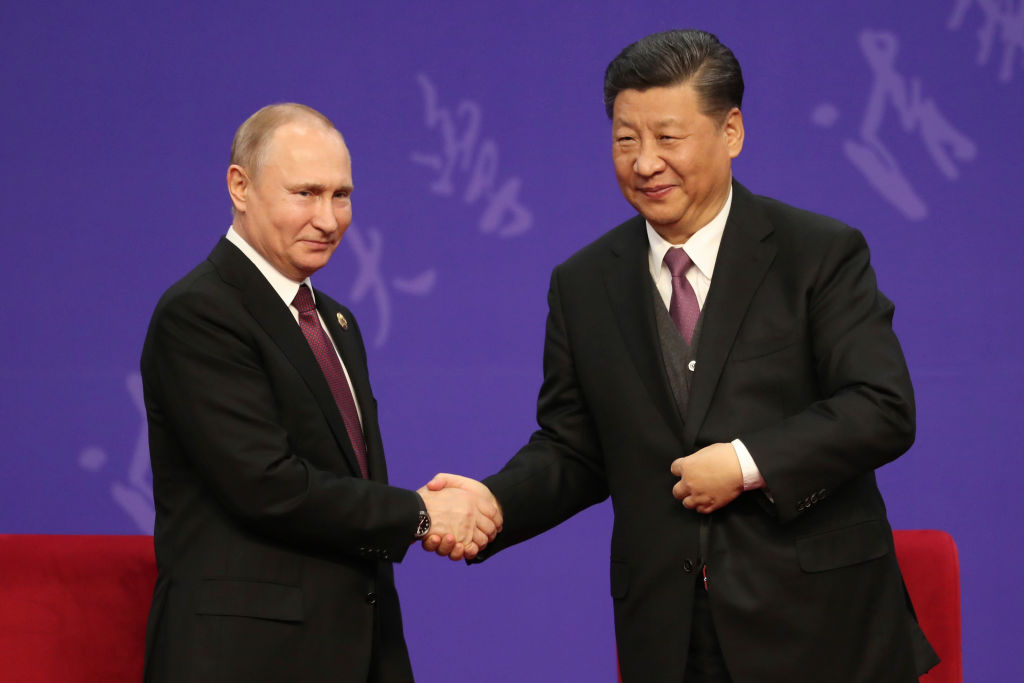The actions of the Beijing government since the earliest days of concern about the disease have shown in stark relief how a closed, authoritarian society tries to deny and shift blame for its misdeeds. How it seeks to co-opt international health agencies. How it tries to bribe foreigners to do its bidding. How it has infected more than not just American bodies, but American society and its institutions at many levels.
Almost no one in American politics, on the Left or Right, has been hailing the Chinese communist government for its efforts to stem the fourth deadly pathogen to come from its shores and devastate the rest of the world. The Chinese government concealed all information about how the virus originated, encouraging speculation they did so intentionally. According to Gordon Chang, they may even be preparing to do so again, only worse.... By comparison, Russia's crimes against the West, real and imagined, amount to a relative nuisance.
Foreign policy, however, is made towards nations, not individual leaders. In geo-political terms it asks: What is another country's ability to help you, or harm you?
In the 1980s no one would have suggested that Idi Amin, Fidel Castro, or Muamar Qaddafi was America's greatest enemy. They were obnoxious sideshows, annoying tinpot dictators with a flair for the microphone, but not existential threats on the order of the Soviet Union.
What this poll suggests is that threat assessment has somehow become a partisan issue, based on political grudges and perceptions that have little to do with a particular nation's real capacity to damage American interests. The divide among Republicans and Democrats between China and Russia as our largest threat fails to account for a modern analysis of China's power, influence, aggressiveness in action, and willingness to corrupt American political and cultural leaders. It should not be a partisan issue, no matter how obnoxious one nation's current leader may be.
Putin loves to tweak America; Xi prefers quieter, more damaging forms of aggression.
It is vital for American voters to understand that bribery is a key part of doing business for both China and Russia.
No matter how much he might like to, Vladimir Putin cannot threaten the balance sheets of huge American companies such as Apple and Microsoft; China could do it tomorrow.

Russian President Vladimir Putin loves to tweak America; Chinese President Xi Jinping prefers quieter, more damaging forms of aggression. (Photo by Kenzaburo Fukuhara - Pool/Getty Images)
Imagine yourself sitting at a poker table with one opponent who fingers his dwindling stack of chips while glowering at you and daring you to bump the pot. Meanwhile, your other opponent with more chips sits quietly behind his cards while his paid spies behind your chair signal him the contents of your hand.
A national poll this spring showed a sharp divide between Democrats and Republicans over whether Russia or China is America's greatest international adversary. Democrats, perhaps still seething from Russia's clumsy efforts to sway the 2016 election to Donald Trump, see Vladimir Putin as a Bond movie villain and master manipulator. Republicans focused on commerce, cyber-security, and Asian ascension, look at emerging China as their greatest threat.
Continue Reading Article
No comments:
Post a Comment